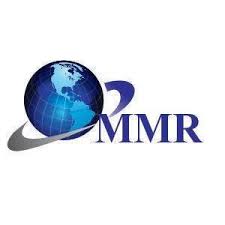In North York, having a dedicated family doctor plays a crucial role in navigating the complexities of healthcare. Your family doctor serves as a central figure in coordinating your care, ensuring continuity, and addressing your health needs comprehensively. In this blog post, we explore the essential role of a dedicated family doctor in North York, highlighting how they coordinate your healthcare journey, facilitate communication among healthcare providers, and advocate for your well-being.
Understanding the Role of a Family Doctor
A family doctor in North York serves as your primary healthcare provider, offering a wide range of medical services tailored to individuals of all ages and backgrounds. They are trained to manage both acute and chronic health conditions, provide preventive care, conduct health screenings, and offer personalized health advice. Your family doctor acts as a trusted partner in your healthcare journey, focusing on building long-term relationships and understanding your unique health needs.
Coordinating Your Healthcare Needs
One of the key responsibilities of a family doctor is to coordinate your healthcare needs across various medical specialties and settings. They serve as a central point of contact, ensuring that you receive timely and appropriate medical care while navigating the healthcare system. This coordination involves:
- Referrals to Specialists: When necessary, your family doctor may refer you to specialists such as cardiologists, dermatologists, or orthopedists for further evaluation or treatment of specific health conditions.
- Communication with Specialists: Your family doctor communicates with specialists to provide them with relevant medical information, coordinate care plans, and ensure seamless transitions between different healthcare providers.
- Follow-Up and Monitoring: After consultations with specialists, your family doctor monitors your progress, adjusts treatment plans as needed, and ensures that all aspects of your care are integrated and cohesive.
Advocating for Your Well-Being
Beyond medical care, your family doctor advocates for your overall well-being by:
- Promoting Preventive Care: Encouraging regular check-ups, health screenings, vaccinations, and lifestyle modifications to prevent illness and maintain optimal health.
- Educating and Empowering Patients: Providing information about health conditions, treatment options, and self-care strategies to empower you to make informed decisions about your health.
- Addressing Holistic Health Needs: Considering not just physical health but also mental, emotional, and social factors that impact your well-being and quality of life.
Building Trusting Relationships
Central to the role of a family doctor in North York is the establishment of trusting relationships with patients and their families. By fostering open communication, listening attentively to concerns, and respecting patient preferences, family doctors create a supportive healthcare environment where patients feel valued and understood. This trust is essential for effective healthcare delivery, patient satisfaction, and improved health outcomes over time.
Practical Tips for Working with Your Family Doctor
To optimize your healthcare experience with your family doctor in North York, consider the following tips:
- Be Prepared for Appointments: Write down any questions or concerns you have before your appointment to ensure you address them during your visit.
- Provide Accurate Information: Share your complete medical history, current medications, and any changes in your health status to help your family doctor make informed decisions.
- Follow Treatment Plans: Adhere to your family doctor’s recommendations for medications, lifestyle changes, and follow-up appointments to achieve optimal health outcomes.
- Communicate Effectively: Keep your family doctor informed about changes in your health, symptoms, or concerns between visits to facilitate ongoing care management.
The Future of Coordinated Care
As healthcare evolves, the role of family doctors in coordinating care is becoming increasingly vital. Advances in technology, such as electronic health records and telehealth, offer new opportunities to enhance care coordination, improve communication among healthcare providers, and empower patients to take an active role in their health management.
By embracing these innovations while upholding the core values of patient-centered care and continuity, family doctors continue to play a pivotal role in guiding patients through their healthcare journeys with compassion, expertise, and dedication.
Your family doctor in North York serves as a cornerstone of your healthcare experience, offering personalized care, coordinating your medical needs, and advocating for your well-being. By partnering with a family doctor who understands your health history, values your input, and prioritizes comprehensive care, you gain a trusted ally in navigating the complexities of healthcare with confidence and peace of mind.
Embrace the collaborative approach of coordinated care, cultivate a strong relationship with your family doctor, and embark on a journey toward enhanced health and vitality under their expert guidance.























